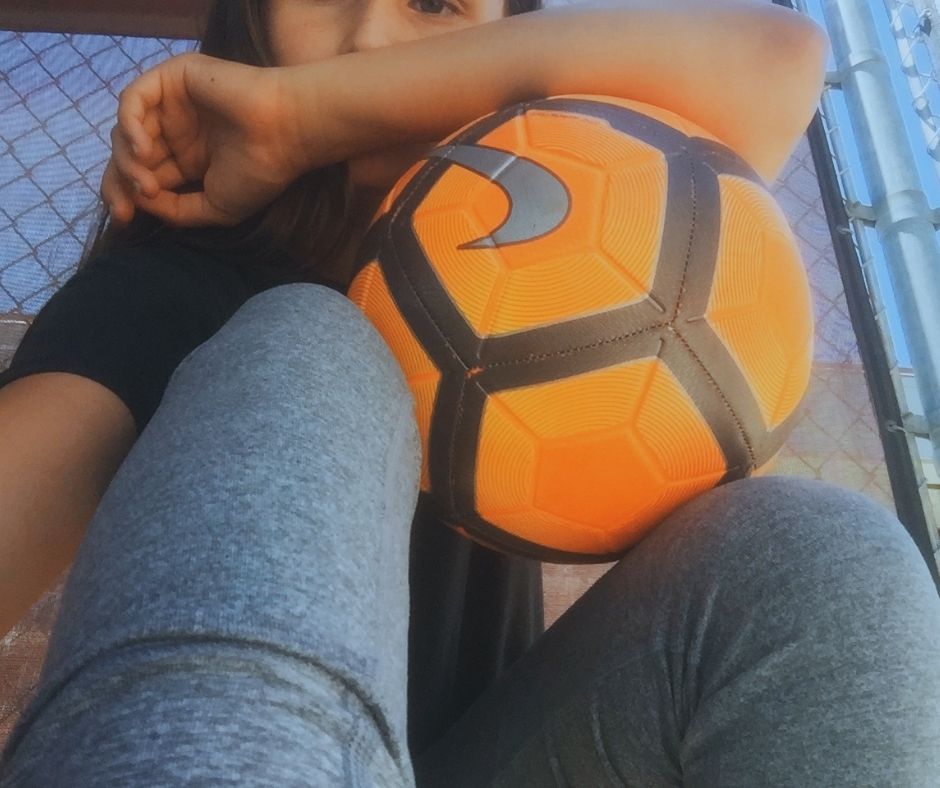
Just Telling An Athlete To Work Hard Is Meaningless Without Context
Just Telling An Athlete To Work Hard Is Meaningless Without Context. I remember one night after playing in a college basketball game, my typically stoic coach came up to me afterward and said something to the effect of, “You were great out there. That’s the way I want to see you play every night.” I recall thinking, what did I do? How was that different from any other game? I really didn’t know.
I once overheard an 8th-grade volleyball volunteer coach tell an athlete who mustered up the courage to talk to him about wanting more play time say, ‘You just have to keep working hard. It will come.”
Often athletes want to improve, want to reach their potential, and want to work hard, but really don’t know how or what they need to do differently.
In his book, The Mindful Athlete, author and mindfulness guru George Mumford who is famous for helping Phil Jackson and Kobe Bryant, says that athletes need to find the place right between comfort and discomfort and live there. This is where the growth occurs. Philosopher Brian Johnson described this as being like a rubber band. You can pull it, but if you pull it too hard, it will snap, and if you don’t pull it hard enough, it goes limp. “For athletes to improve, they need to live in that sweet spot, putting some stress on the band but not breaking it.”
Several years ago, I participated in an early morning boot camp where we would run a long set of stairs on a steep incline. It would be freezing cold, dark, and pretty miserable. I hated this exercise and would inevitably have to stop and walk at various points throughout it. One day, I decided that each time I ran the stairs, at the point I wanted to stop, I would do one more section, as they were broken up into about fifteen sections with about ten stairs per section. I kept adding more and more each week. It was hard, really hard. Sometimes, it felt like my heart might beat right out of my chest. But the results were immediate and clear. Each time I could do more and more, within about two weeks, I completed the entire stairwell without stopping. In my own mini-experiment, I was able to watch my lung capacity grow in real time. My understanding of what is possible as an athlete also grew.
Pushing through discomfort is a large part of how you reach your potential. An athlete can be committed and show up to all the practices and training, but they won’t reach their potential unless they do the following:
A) Consistently push themselves to work a little harder, faster, longer, more intensely, or with more resistance.
B) Be purposeful about trying new training styles, training partners, positions, moves, and mindset practices that challenge them in different ways, both mentally and physically.
C) Deliberate practice – practice smarter, not longer
This can look like many different things for an athlete, but here are just a few examples:
- Start a feedback loop in practice or training where they keep track of their times or their shots, or whatever goals they are working on and adjust based on the feedback they receive from a coach, friend, or parent who is helping track them.
- Spend ten to fifteen minutes outside of practice working on areas they are struggling or deficient.
- Listen to podcasts or read about mindfulness and doing athlete-focused meditations.
- Try new skills, moves, or positions during practice.
- Watch tape of their games, their opponents, and collegiate and professional athletes and analyze what’s successful and what isn’t
- Extra fitness training on their own for 15-20 3-4 times per week.
- Ask the coach to stay after for a few minutes or come a little early to work on something specific.
- Train when possible with a more advanced team.
Imagine if they do a few of those things or even one of them consistently, how much their talent and skills will expand. In a recent blog, Coaching consultant JP Nerbun spoke about 1% growth. It’s basically the outcome of putting into action a growth mindset and pushing out of your comfort zone. He shared that it’s a hot topic amongst good coaches these days, “Let’s just work to get 1% better today.” This can and will translate to a HUGE amount of improvement. If you grow by 1% consistently every workout, you will inevitably be much better than where you were when you started.
Other Articles You Might Like:
One Simple Hack To Help You Perform Better











